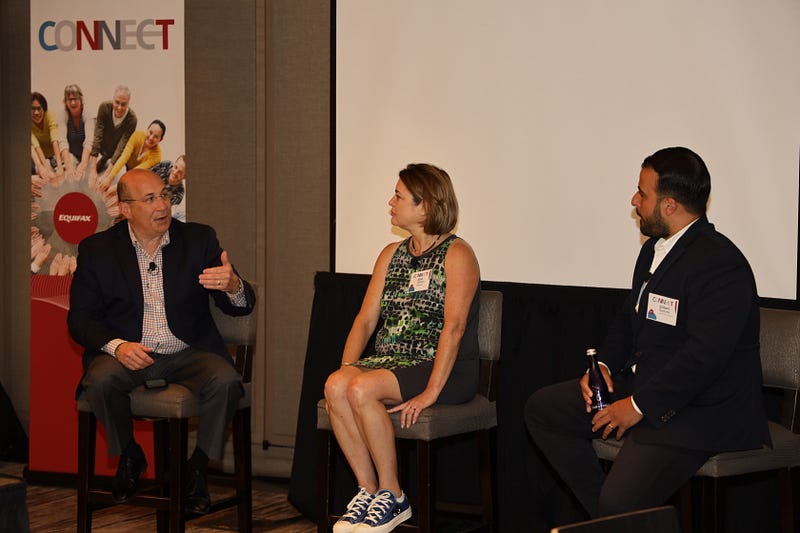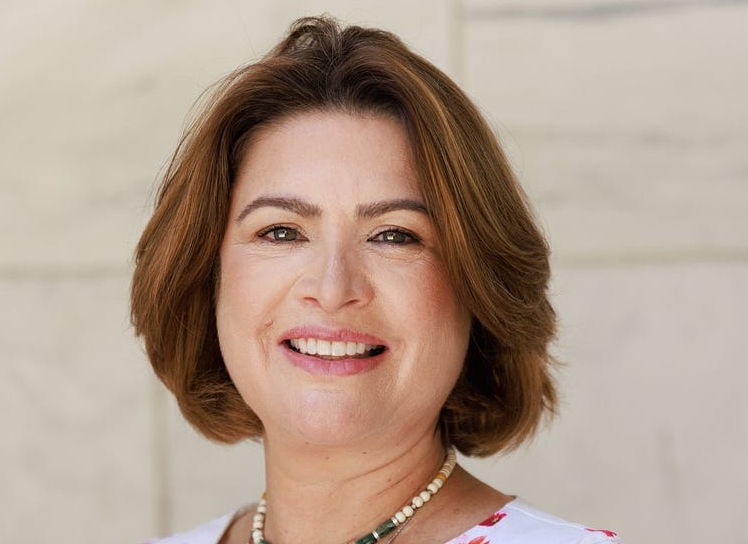Flexibility — The pandemic has accelerated the trend towards flexible work arrangements, and this is likely to continue in the future. This includes offering remote work options, flexible scheduling, and other arrangements that allow employees to balance work with other responsibilities.
When it comes to designing the future of work, one size fits none. Discovering success isn’t about a hybrid model or offering remote work options. Individuals and organizations are looking for more freedom. The freedom to choose the work model that makes the most sense. The freedom to choose their own values. And the freedom to pursue what matters most. We reached out to successful leaders and thought leaders across all industries to glean their insights and predictions about how to create a future that works.
As a part of our interview series called “How Employers and Employees are Reworking Work Together,” we had the pleasure to interview Einat Steklov.
Einat is the founder of Kashable, a financial wellness company that brings an innovative approach to consumer lending. Kashable works with employers to provide employees with access to socially responsible, low-cost credit to help bridge the financial gap caused by personal emergencies and other times of hardship. The loan program offers an intelligent alternative to 401(k) loans, credit cards, and pay advances. Einat founded Kashable with the vision of transforming the way working America accesses credit by providing financing solutions that empower employees to take charge of their health, wealth, and financial wellness.
Thank you for making time to visit with us about the topic of our time. Our readers would like to get to know you a bit better. Can you please tell us about one or two life experiences that most shaped who you are today.
I launched Kashable with my co-founder, Rishi Kumar, after immigrating to the United States from Israel. As an immigrant, I was unable to establish a credit profile with any credit bureau despite being employed with a budget — I had no buying power and no access to financing. When I met Rishi, I learned he had a similar experience as an immigrant from India. Neither of us existed in the credit bureaus’ files, which made it impossible to access financing.
Our shared experience inspired us to create Kashable, a financial wellness company that provides affordable loans and financial education to employees across the credit and wage spectrum. Our mission is to make sure that all Americans, regardless of their background, have access to the financial tools they need to succeed.
Let’s zoom out. What do you predict will be the same about work, the workforce and the workplace 10–15 years from now? What do you predict will be different?
Technology will continue to play a significant role: expect automation, AI, and other emerging technologies to be implemented with the hopes of increasing efficiency, productivity, and accuracy across many industries.
While tech may change the way work is done, the basic human motivations that drive us in the workplace will remain the same. People will still want to feel valued for their contributions and have opportunities to grow and develop their skills. The need for collaboration will also remain the same. Even though remote work is becoming more prevalent, the workplace will continue to be a place where people come together to collaborate, solve problems, and build relationships.
What advice would you offer to employers who want to future-proof their organizations?
Employers should focus on building a strong culture that aligns with the values and expectations of employees, especially the younger generations who are more sensitive to the core values of an organization. It’s important to communicate the company’s mission statement clearly and consistently to attract the right talent.
Employers should also invest in developing their current employees and building a strong talent pipeline. This includes offering opportunities for training and upskilling, as well as fostering a supportive work environment that encourages growth and development.
What do you predict will be the biggest gaps between what employers are willing to offer and what employees expect as we move forward? And what strategies would you offer about how to reconcile those gaps?
The biggest gaps will likely be related to benefits and flexibility. Employers may be hesitant to offer more generous benefits and flexible work arrangements due to cost concerns or fears of decreased productivity. However, these are becoming increasingly important to employees, and companies that do not prioritize them may suffer.
To remedy these gaps, employers should consider investing in benefits that align with their employees’ needs and values, and communicate clearly about their commitment to flexibility and work-life balance. Additionally, offering training and development opportunities can help employees feel valued and supported in their career growth, which can improve satisfaction and retention.
We simultaneously joined a global experiment together last year called “Working From Home.” How will this experience influence the future of work?
The demands for remote work aren’t going away, and companies must adapt. A hybrid work model, where employees alternate between the office and home, is becoming the new norm for many organizations. This approach allows for greater flexibility and work-life balance, giving employees the freedom to choose how and where they work. The use of technology and digital tools for remote collaboration and communication will also continue. Companies that have already adapted their working environments or are preparing to do so will be well-positioned for the future of work. Remote work is here to stay, and organizations need to proactively address the challenges and opportunities it presents to meet the evolving needs of both employees and businesses alike.
We’ve all read the headlines about how the pandemic reshaped the workforce. What societal changes do you foresee as necessary to support a future of work that works for everyone?
One essential change is the need for stronger social safety nets and income support. This includes universal basic income or a living wage, which can provide financial stability and security for workers during times of economic uncertainty. Access to affordable healthcare, including mental health services, is also crucial to support the well-being of workers and their families.
In the workplace, benefits like paid sick leave, paid parental leave and minimum paid leave will greatly improve employee satisfaction. Alongside these changes, flexible work arrangements can support workers’ health and well-being, benefiting both employers and employees. Another essential change is greater investment in financial wellness — organizations should be investing in resources and training to help employees understand how to plan their savings.
Employers also need to have a holistic value proposition, especially when it comes to younger employees — who expect more than just basic compensation and benefits. There should be an increased focus on diversity, equity, and inclusion in the workplace, including efforts to address systemic racism, sexism, and other forms of discrimination, to create a more inclusive and supportive work environment for all.
What is your greatest source of optimism about the future of work?
More companies are recognizing the importance of diversity, equity, and inclusion in the workplace, which will lead to a more inclusive work environment. The rapid and continuous evolution of technology is also something to look out for — it will lead to new job opportunities and improvements in productivity for businesses.
On the employee’s side, flexible work arrangements are on the rise, which will lead to increased employee satisfaction, reduced commuting time and costs, and more work-life balance. Another exciting change is the younger generation entering the workforce who value mental health, social responsibility, and work-life balance, which could lead to a shift towards more compassionate and sustainable business practices.
Our collective mental health and wellbeing are now considered collateral as we consider the future of work. What innovative strategies do you see employers offering to help improve and optimize their employee’s mental health and wellbeing?
Employers are implementing a range of progressive strategies to support their workforce. One key strategy is to offer comprehensive well-being programs and benefits that address the physical, mental, and financial health of employees. For example, some employers are offering access to mental health counseling and resources. They may also provide financial wellness programs, such as access to financial planning tools, debt management resources, and financial education programs.
It seems like there’s a new headline every day. ‘The Great Resignation’. ‘The Great Reconfiguration’. And now the ‘Great Reevaluation’. What are the most important messages leaders need to hear from these headlines? How do company cultures need to evolve?
The current headlines all signal that the workforce is undergoing significant changes, and employers need to take note. Leaders need to listen to evolving needs of their employees, and build a “people first” workplace that prioritizes employee well-being and work-life balance. Basic benefits are no longer enough to attract and retain top talent. Companies need to show they care about their employees and provide support in multiple areas beyond just the basics — this includes investing in benefits like financial wellness, mental health, and implementing generous time off.

Let’s get more specific. What are your “Top 5 Trends To Track In the Future of Work?”
- Equality — As diversity and inclusion continues to be a top priority for many organizations, ensuring that everyone has equal access to opportunities and resources will become increasingly important. This includes addressing pay equity and fostering a culture of inclusion that values diverse perspectives and backgrounds.
- Collaboration — The rise of remote work and digital communication tools has made collaboration more important than ever. As a result, organizations will need to find new ways to foster teamwork and build connections across remote teams and geographies.
- Diversity + Inclusion — Building a diverse and inclusive workforce is critical to the success of any organization. Companies will need to prioritize hiring and promoting a diverse range of employees and create a culture that values and respects differences.
- Flexibility — The pandemic has accelerated the trend towards flexible work arrangements, and this is likely to continue in the future. This includes offering remote work options, flexible scheduling, and other arrangements that allow employees to balance work with other responsibilities.
- Core Values — In order to attract and retain top talent, companies will need to be clear about their core values and mission, and communicate them effectively to their employees. In addition, companies will need to ensure that their employees are aligned with the company’s values and mission, and are motivated by a sense of purpose beyond just earning a paycheck.
I keep quotes on my desk and on scraps of paper to stay inspired. What’s your favorite “Life Lesson Quote”? And how has this quote shaped your perspective?
“Whatever future you’re building, don’t try to program everything.” — Pierre Omidyar
It’s important to remember that you can’t plan for everything. I’ve learned that there will always be mistakes or situations that you can’t prepare for, but you will learn something from it. This quote reminds me of that.
We are very blessed that some of the biggest names in Business, VC funding, Sports, and Entertainment read this column. Is there a person in the world, or in the US, with whom you would love to have a private breakfast or lunch, and why? He, she, or they might just see this if we tag them.
If given the opportunity, I’d love to have lunch with Pierre Omidyar, the founder of eBay. I’m deeply inspired by his story, particularly his drive to effect change through a combination of insight, innovation, talent, and timing and would love to discuss how we founded our respective companies, the obstacles we overcame, and our shared missions.
Our readers often like to continue the conversation with our featured interviewees. How can they best connect with you and stay current on what you’re discovering?
Readers can connect with me on LinkedIn: https://www.linkedin.com/in/einat-steklov-099650/
Thank you for sharing your insights and predictions. We appreciate the gift of your time and wish you continued success and good health.


